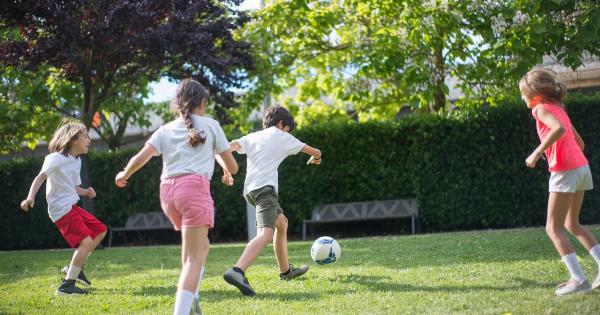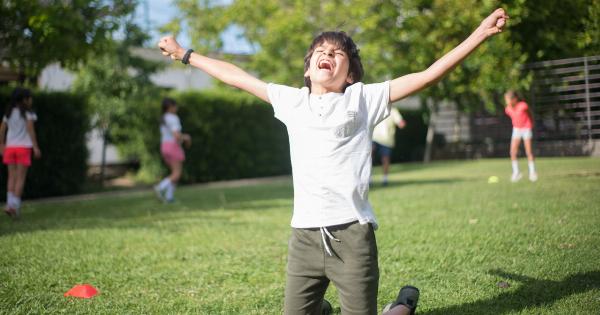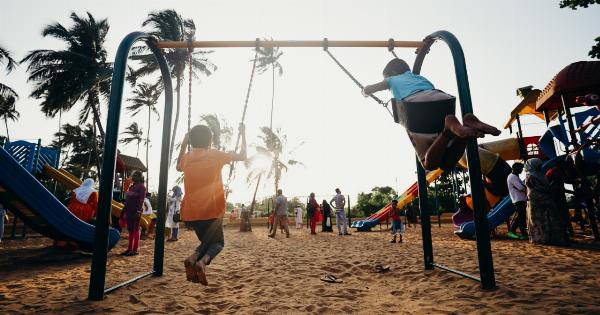When a child is unable to attend school for various reasons, it is essential for parents and guardians to take a proactive approach in supporting their educational needs.
This article aims to provide guidance on how to support a child who is not attending school using a Panhellenic approach. By understanding the importance of education and implementing strategies that align with the child’s interests and abilities, parents can ensure their child receives adequate support and continues to learn and grow.
Understanding the Reasons for Non-Attendance
The first step in supporting a child who is not attending school is to identify and understand the reasons behind their non-attendance. Some common reasons include illness, bullying, anxiety, learning difficulties, or even disciplinary issues.
Each reason requires a different approach, and it is crucial to communicate openly with the child to uncover the underlying cause.
Establishing a Supportive Environment
Creating a supportive environment at home plays a vital role in helping a child who is not attending school.
Establishing a routine, providing a dedicated study space, and offering emotional support are effective ways to ensure the child feels safe and motivated to learn. Additionally, fostering a positive relationship between the child and their peers can help build social connections and alleviate feelings of isolation.
Collaborating with Educators and Professionals
Collaboration with educators and professionals is essential to ensure that the child receives the necessary educational support.
Parents should communicate with the child’s teachers, school counselors, and specialists to develop an individualized plan that addresses their specific educational requirements. Regular meetings and open lines of communication are vital to monitor progress and make any necessary adjustments.
Exploring Alternative Education Options
If traditional school attendance is not possible for a child, it may be necessary to explore alternative education options. This can include homeschooling, distance learning programs, or tutoring services.
Researching and selecting the most suitable option based on the child’s needs and learning style is crucial to provide a quality education that meets their individual requirements.
Implementing Individualized Learning Plans
Developing individualized learning plans tailored to the child’s strengths, weaknesses, and interests is a vital aspect of supporting their educational journey.
These plans should include specific goals, strategies, and resources to ensure the child receives a well-rounded education. Regular assessment and evaluation of the plan’s effectiveness are necessary to make adjustments and ensure continued progress.
Utilizing Technology and Online Resources
In today’s digital age, technology and online resources can be powerful tools in supporting a child’s education outside of the traditional school setting.
Accessing educational websites, online courses, interactive learning platforms, and educational apps can supplement their learning and keep them engaged. However, it is essential to monitor screen time and ensure the child is using appropriate and reliable resources.
Encouraging Extracurricular Activities
Participation in extracurricular activities can provide the child with additional opportunities for learning, socialization, and personal growth.
Encouraging involvement in community programs, sports clubs, art classes, or music lessons can help maintain a well-rounded education and foster the development of important life skills.
Promoting a Love for Learning
Supporting a child who is not attending school requires cultivating a love for learning and a curiosity about the world.
Parents can achieve this by introducing the child to a wide range of subjects, encouraging their interests, and providing access to educational materials such as books, documentaries, and museums. By promoting a positive attitude towards learning, children can develop a lifelong passion for knowledge.
Monitoring Progress and Celebrating Achievements
Regularly monitoring the child’s progress is crucial in identifying areas of improvement and celebrating achievements. This can be done through periodic assessments, feedback from educators, or informal evaluations.
Recognizing and celebrating the child’s accomplishments, both big and small, helps to boost their self-esteem and motivation to continue learning despite the challenges they may face.
Seeking Professional Help
If a child’s non-attendance persists or if their educational needs are not adequately met, it may be necessary to seek professional help.
Mental health professionals, educational psychologists, or counselors can provide additional support and guidance for both the child and their parents. These experts can help identify underlying issues, develop coping strategies, and suggest further interventions to ensure the child’s educational and emotional well-being.
Conclusion
A Panhellenic approach to supporting a child who is not attending school involves understanding the reasons behind their non-attendance, creating a supportive environment, collaborating with educators, exploring alternative education options, implementing individualized learning plans, utilizing technology and online resources, encouraging extracurricular activities, promoting a love for learning, monitoring progress, and seeking professional help when needed. By taking a comprehensive and proactive approach, parents can ensure their child’s educational needs are met, and they are set on a path to lifelong learning and success.






























